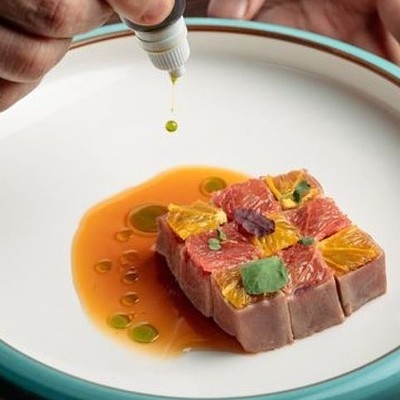Have you ever removed the top of the capsule from a bottle of wine to find mold on the top of the cork (as in the photo above)?
It happened to me over the Christmas break when I opened a bottle of Brunello di Montalcino for one of our holiday meals.
When it comes to food in our refrigerator or pantry, mold is a bad sign. It's an indication that the food has spoiled and has been exposed to a combination of warmth and moisture resulting in the appearance of a bacterium.
But when I find mold under the capsule of a wine bottle, it tells me that the wine has been aged in good condition in the winery's storage.
Before the wine is bottled and sealed with a capsule, it resides in the winery's cellar (in the case of Brunello, it has to be stored in the winery's cellar for a minimum of four months, although by my calculations, this wine had been aged in bottle for about two years before release). And while cellars are generally maintained at 50-59° Fahrenheit in order to let the wine "mature" slowly, the presence of humidity is fundamental: If the cork dries out, it will contract and allow an excessive amount of oxygen to come into contact with the wine. The cork also needs to remain moderately moist so that it can gently oxygenate the wine thanks to its porous nature.
How was our Brunello? It was great: I used a damp kitchen towel to wipe off the mold and when I pulled the cork, I found it to be perfectly elastic and slightly moist.
Next week we'll post about cork taint and the "fitness" of wine. Have questions about how to evaluate the condition of wine? Please share them in the comment section and I'll address them in next week's posts.
Update: You can find more on cork taint and wine fitness in today's post on the "cork controversy" below.
Follow Eating Our Words on Facebook and on Twitter @EatingOurWords






